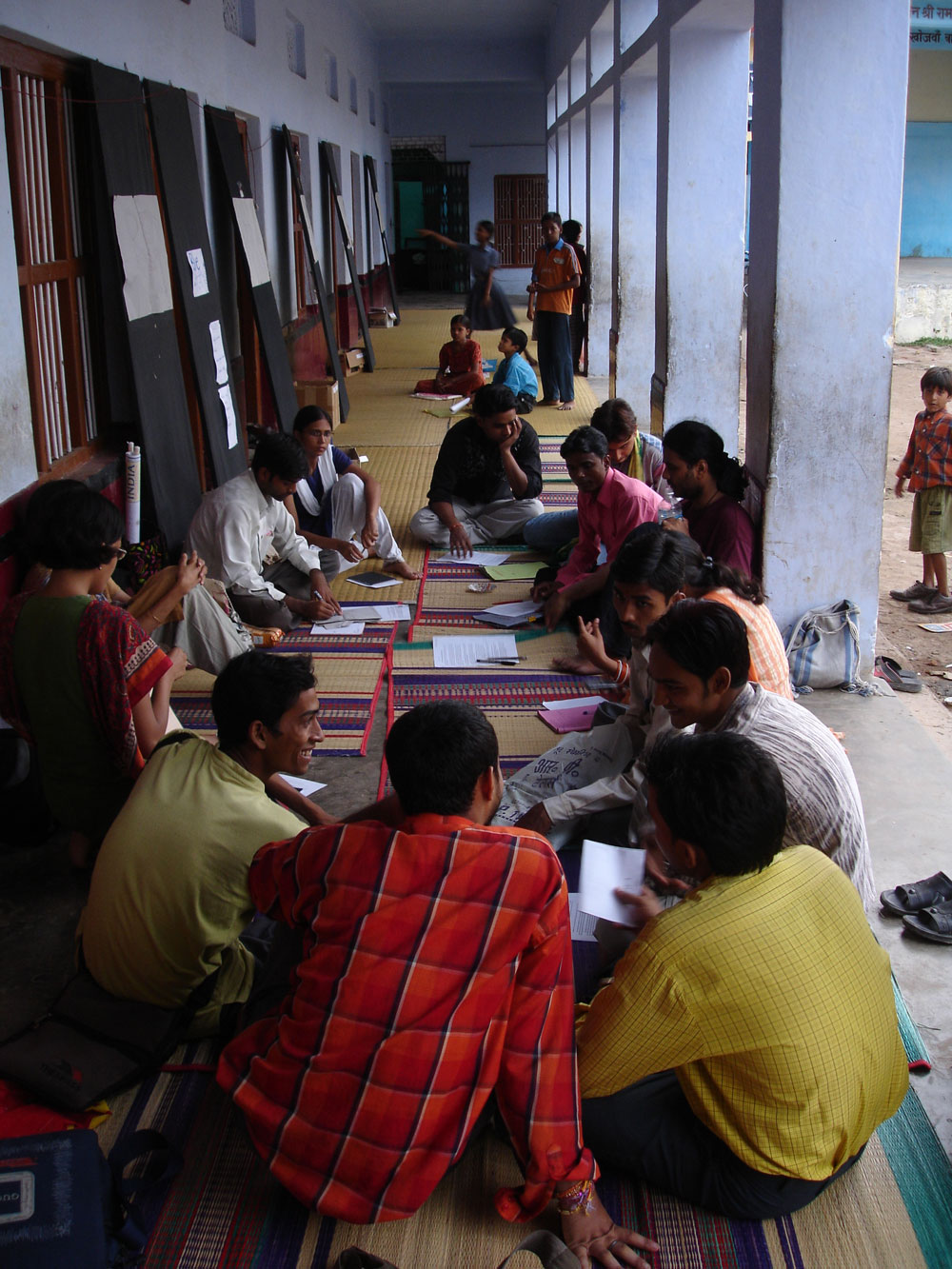Nirman Tirtha Southpoint School & Vidyashram




Grant Period: Over nine months
NIRMAN’s work in Varanasi, Uttar Pradesh, focuses on children and their families, education, civic consciousness, the arts, and international exchange. Its two main bodies are Vidyashram - The Southpoint, a school for boys and girls, and the Centre for Postcolonial Education, a research centre integrating scholarship and activism.
Ramlila is a traditional folk theatre form that comes to life for one month every year. It is an activity of neighbourhood communities, several of which are dotted across Varanasi. Ramlila is predominantly a child-centred theatre, based on stories about Rama’s life, and performed largely by, and for, children. Communities see it as a key annual festival, which imparts core values, traditions and a worldview to younger generations. Ramlila has experienced dramatic decline in recent decades, while the pravachana and Ramkatha forms, which also deal with Rama’s life, are booming. It is clear that the Hindu religious right wing has not seen fit to include the Ramlila in its globalised saffron campaign. NIRMAN’s project takes cognizance of the above factors and uses a child-centric approach to achieve educational and social aims, and peripherally address issues of civil society. As a folk theatre form, Ramlila shares many dramaturgical precepts with other such forms in India. The actors’ ability to remember and precisely deliver large numbers of lines is less important than his or her conduct. The ethos of Ramlila defies the modern distinctions between fact and fiction, myth and history, performer and audience, and even code and meaning. NIRMAN’s project hopes to restore some of Ramlila’s eroded value to the communities that have sustained it over the centuries. The project’s educational aims recognise that the Ramlila blurs another conventional distinction––between the object of learning and the process of learning.
Ramlila, crucially, belongs to various neighbourhood communities (mohallas) in Varanasi. In past years, an informal and congenial competition could be seen among the mohallas. NIRMAN will work with the community of the Khojwa mohalla, one that it has partnered with in various ways earlier. The project will be executed in association with the Ramlila Committee of the Khojwa mohalla, at the Khojwa committee space. With prior research, extensive workshops and rehearsal, and documentation, the project hopes to kick start a revival of the Ramlila as a vibrant, community-based phenomenon that performs a crucial role in cultural transmission. NIRMAN intends to challenge the perception that the Ramlila is for the poor and the weak, people without access to the world of the secular, the modern and the global.
Initially, NIRMAN will undertake planning, publicity and interaction for the workshop, and prepare texts, worksheets, videos, slides and other similar curricular materials. NIRMAN will then be in charge of a training session for children of approximately eight to thirteen years, two hours a day, five days a week. This one-month long session will include interactive teaching, games, activities and theatre training. Right from the beginning this will be accompanied by publicity for the project in the neighbourhood, partly to recruit children from the mohalla; and publicity in the wider city, as well as the whole country. A large number of do-it-yourself kits, a handbook, a website, and a film documenting the whole process will be produced for widespread dissemination.
